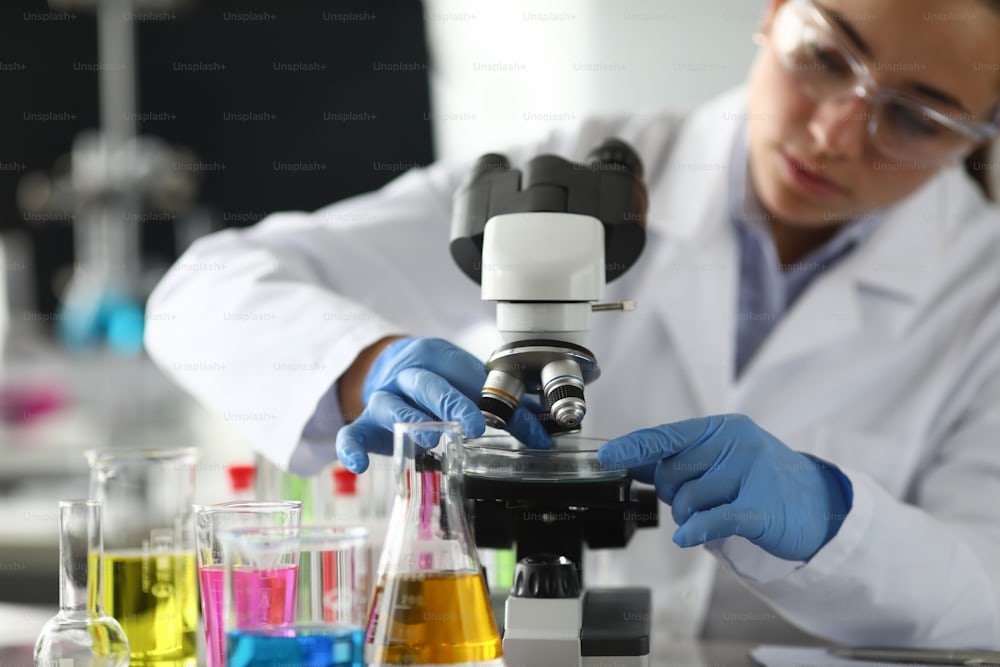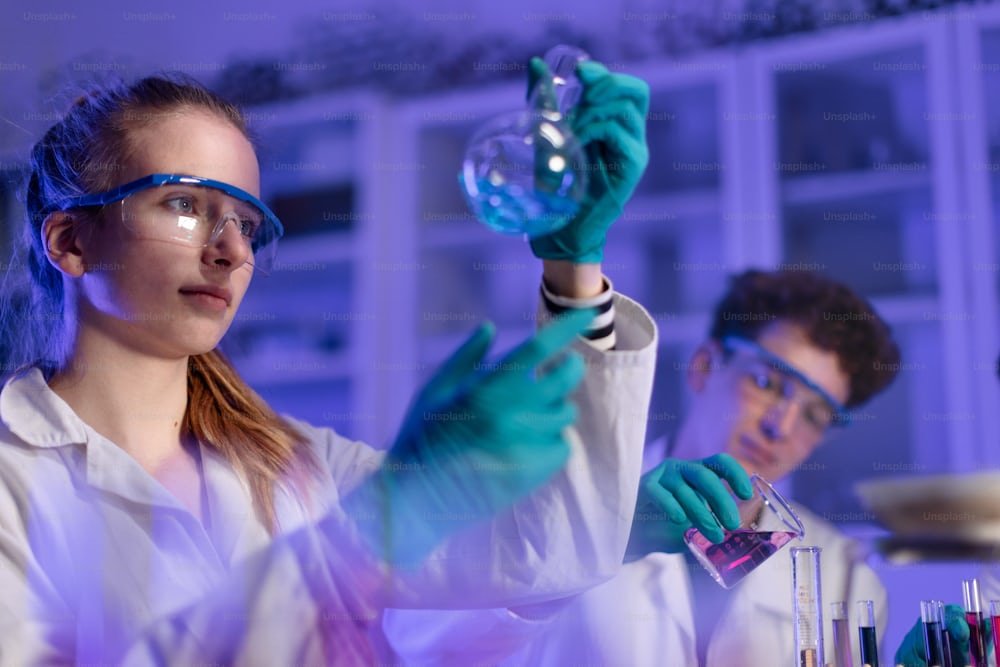
Biotechnology is an interdisciplinary field that merges biological sciences with engineering technologies to manipulate living organisms and biological systems. A Bachelor of Technology (B.Tech) in Biotechnology provides students with a strong foundation in engineering principles and biological sciences. This prepares them for various careers in research, development, and innovation in the biotech industry. This article will explore the typical syllabus for a B.Tech in Biotechnology and offer insights into the subjects and topics covered over four years of study.
Overview of the B.Tech in Biotechnology Program

A B.Tech in Biotechnology Syllabus usually lasts four years and consists of eight semesters. The program’s design provides students with a mix of theoretical knowledge and practical skills. The first year generally focuses on building a strong foundation in basic sciences and engineering principles, while the subsequent years delve deeper into specialized subjects related to biotechnology. The syllabus is often updated to keep pace with the latest advancements in the field, ensuring that graduates are well-prepared to meet industry demands.
First Year: Building a Foundation in Sciences and Engineering
The first year of the B.Tech in Biotechnology program primarily focuses on laying the groundwork in fundamental sciences and engineering disciplines. Courses typically include Mathematics, Physics, Chemistry, and Computer Science. These subjects are essential as they provide the basic tools and knowledge necessary for understanding more complex biotechnological concepts.
Alongside core science courses, students study Engineering Graphics, Basic Electrical and Electronics Engineering, and Introduction to Biotechnology. The Introduction to Biotechnology course covers the field’s history, key milestones, and its applications in agriculture, medicine, and environmental science.
Second Year: Introduction to Core Biotechnology Subjects
The second year marks the beginning of more specialized study in biotechnology. Students are introduced to core subjects such as Microbiology, Biochemistry, Molecular Biology, and Genetics. These courses provide a detailed understanding of the cellular and molecular processes that are fundamental to all living organisms.
Microbiology introduces students to the study of microorganisms, their physiology, and their role in various environments. Biochemistry covers the chemical processes within living organisms, focusing on biomolecules such as proteins, lipids, carbohydrates, and nucleic acids. Molecular Biology dives deeper into the structure and function of genes at a molecular level, while Genetics explores the principles of heredity and variation in living organisms.
In addition to these core subjects, students also study courses like Thermodynamics, Fluid Mechanics, and Cell Biology. These subjects provide a necessary background in engineering principles and biological sciences, enabling students to understand the physical and chemical principles that underpin biotechnological processes.
Third Year: Advanced Biotechnology and Engineering Applications
The third year of the program is characterized by more advanced courses that combine biotechnology with engineering applications. Students are introduced to courses such as Genetic Engineering, Immunology, Bioprocess Engineering, and Bioinformatics. These courses are designed to provide an in-depth understanding of the tools and techniques used in modern biotechnology.
Genetic Engineering covers the principles and techniques used to manipulate genes for various applications, including the production of genetically modified organisms (GMOs), gene therapy, and recombinant DNA technology. Immunology focuses on the study of the immune system and its role in defending the body against pathogens.
Bioprocess Engineering is a key subject that combines biological sciences with chemical engineering principles to develop processes for the large-scale production of biological products, such as vaccines, enzymes, and biofuels. Bioinformatics introduces students to the use of computational tools to analyze and interpret biological data, particularly in the context of genomics and proteomics.
During the third year, students also engage in practical laboratory work and projects that provide hands-on experience in various biotechnological techniques and processes. This practical training is crucial for developing the skills necessary to work effectively in research and development settings.
Fourth Year: Specialization and Research Projects

The final year of the B.Tech in Biotechnology program allows students to specialize in specific areas of interest. Elective courses are offered in areas such as Plant Biotechnology, Animal Biotechnology, Environmental Biotechnology, and Industrial Biotechnology. These courses enable students to tailor their education to their career goals and interests.
Plant Biotechnology focuses on the use of biotechnological techniques to improve crop yield, resistance to pests and diseases, and nutritional content. Animal Biotechnology involves the use of genetic and reproductive technologies to improve livestock production and health. Environmental Biotechnology explores the use of biotechnology for environmental protection and sustainability, including bioremediation and waste management. Industrial Biotechnology focuses on the application of biotechnology in industries for the production of chemicals, materials, and biofuels.
In addition to elective courses, the final year also involves a major research project or internship. This project is an opportunity for students to apply the knowledge and skills they have acquired throughout the program to a real-world problem or research question. It also provides valuable experience in conducting independent research, analyzing data, and presenting findings.
Conclusion: Preparing for a Career in Biotechnology
The B.Tech in Biotechnology syllabus is designed to provide a comprehensive education that combines theoretical knowledge with practical skills. The program covers subjects from basic sciences to advanced biotechnology and engineering applications, preparing students for various careers in the biotech industry. Graduates can work in research, development, quality control, regulatory affairs, and production across pharmaceuticals, agriculture, healthcare, and environmental management. It also offers a strong foundation for those pursuing higher studies or research in biotechnology.
Overall, the B.Tech in Biotechnology is a challenging and rewarding program. It equips students with the skills needed to contribute to the advancing field of biotechnology.







